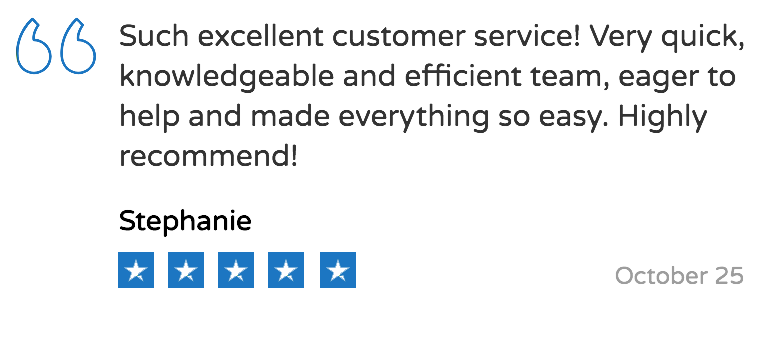Your
6+ Years Acing Homework | 350k+ Happy Students
- Homework
- Assignment
- Quiz
- Test
- Proctored Exam
- Essay
- Project
- Full Online Class
Get Homework Help on These Platforms
We have extensive experience doing homework for students on these online platforms boosting your grades
- Canvas
- Backboard
- Pearson MyLab
- MyMathLab
- MathXL
- WebAssign
- MyOpenMath
- ConnectMath
- HawkesLearning
- Connect
- Aleks
- D2L (Desire2Learn)
- Cengage
- Moodle
- WileyPlus
- MacGraw-Hill
- Straighterline.Com
- Sophia.Org
- Study.Com
- Many Others
Bookkeeping vs Accounting: Understanding the Differences for Career Success
Diving into the financial world can be a game-changer for your career, especially when you’re eyeing the realms of bookkeeping and accounting. But here’s the thing, while they may seem interchangeable at a glance, understanding the key differences between bookkeeping and accounting is crucial for your career success. Whether you’re a college student looking to make informed decisions about your future or simply curious about the financial field, this distinction matters.
Bookkeeping and accounting are the backbone of the financial industry, each playing a unique role in business success. If you’re aiming to thrive in either of these careers, it’s essential to grasp not just the technical skills required but also how these roles fit into the bigger financial picture. Stick around as we break down the specifics, helping you navigate your way towards a fulfilling career in the financial world.
Bookkeeping vs Accounting: Understanding the Differences
When you’re exploring your way through the financial industry, knowing the ins and outs of bookkeeping and accounting is like having a map in a vast, complicated city. Both may seem to lead to the same destination – financial clarity and success – but they take different routes to get you there.

Unlocking Accounting
Bookkeeping is your day-to-day financial journal. Think of a bookkeeper as the navigator, carefully logging every financial transaction with precision. Their role includes:
- Recording financial transactions
- Posting debits and credits
- Managing payroll
- Maintaining and balancing ledgers, daily entries, and financial statements
Accounting, on the other hand, is like the strategist analyzing the map, interpreting the data recorded by the bookkeeper to make critical business decisions. Accountants take the information logged by bookkeepers to:
- Prepare adjusting entries
- Generate financial statements
- Analyze operational costs
- Prepare tax returns
- Offer advice on financial planning
To put it simply, bookkeeping lays the groundwork for accounting.
| Aspect | Bookkeeping | Accounting |
|---|---|---|
| Focus | Recording daily transactions | Interpreting financial data |
| Reports | Balance sheets, ledgers | Financial statements, tax returns |
| Skills | Attention to detail, precision | Analytical, strategic thinking |
Understanding the differences between these roles is crucial for students and professionals aiming for a career in finance. Each position requires a unique set of skills and offers different career paths. Whether you dream of crunching numbers as an accountant or meticulously recording transactions as a bookkeeper, grasping these distinctions can help pave the way for your success in the financial world.
Explore Further:
For those hungry for more insights, consider diving into online courses or grabbing books that shed light on the intricacies of both fields. Platforms like Coursera or Khan Academy offer fantastic starting points. Also, don’t forget the power of internships; gaining hands-on experience can be invaluable.
- For Bookkeeping:
- “Bookkeeping For Dummies” by Lita Epstein
- An introductory course on QuickBooks
- Internship at a local firm to get hands-on experience
- For Accounting:
- “The Accounting Game: Basic Accounting Fresh from the Lemonade Stand” by Darrell
Importance of Understanding the Differences
Diving into the world of finance, you’ve probably stumbled upon the terms bookkeeping and accounting. While they sound similar, knowing the difference can make or break your career in this field. Here’s why it’s crucial to grasp what sets them apart.
Bookkeeping: The Backbone of Financial Accuracy
Think of bookkeeping as the foundation of a skyscraper. It’s the day-to-day recording of financial transactions, and without it, the entire structure could falter. Here’s what bookkeeping gives you:
- Precision and Detail: Every financial interaction, whether it’s a sale, purchase, or payment, is meticulously noted. This habit keeps financial statements error-free.
- Organizational Skills: As a bookkeeper, your knack for organization keeps financial chaos at bay. Imagine trying to find a needle in a haystack. Now, imagine if that needle were magnetized. Bookkeeping is that magnet.
- Payroll Management: Ensuring everyone gets paid on time is no small feat. Bookkeepers handle the nitty-gritty of payroll, a cornerstone of employee satisfaction.
Accounting: The Strategic Mastermind
Accounting takes the baton from bookkeeping and sprints toward strategic financial planning and analysis. Let’s break down its superpowers:
- Interpretation: Accountants look at the numbers recorded by bookkeepers and turn them into actionable insights. It’s like reading tea leaves, but each leaf is a data point that can predict financial future.
- Financial Statements: Think of these as the health reports of a business. Accountants prepare these documents, which are critical for decision-making by management.
- Advice: With their in-depth understanding of finances, accountants offer tailored advice to steer the business in the right direction.
Why It Matters to You
Whether you’re eyeing a role in bookkeeping or accounting, understanding both disciplines gives you a competitive edge. Imagine rocking up to an interview with a clear vision of where you fit into the financial ecosystem and how you can add value. It’s the difference between blending in and standing out.
Additionally, this insight allows you to flexibly move within the finance industry. You’re not just pigeonholed into one role; you understand the entire lifecycle of financial management. That’s an invaluable skill set in today’s dynamic job market.
- Online Courses: Platforms like Coursera and Udemy offer a plethora
The Role of Bookkeeping in Business Success
You’ve likely heard the term “bookkeeping” thrown around in conversations about business success. But what role does it really play? Think of bookkeeping as the foundation of a building. Without a solid base, the structure is vulnerable to collapse. Similarly, without precise bookkeeping, a business may struggle to thrive or even survive in today’s competitive environment.
Bookkeeping is more than just a numbers game. It’s about keeping your financial house in order so that every transaction is accounted for. In a nutshell, good bookkeeping ensures that:
- Every penny spent or earned is tracked.
- Financial statements are timely and accurate.
- Budgeting becomes more precise.
Imagine trying to plan a road trip without knowing how much fuel you have. You could end up stranded! That’s what running a business without effective bookkeeping is like. You’re exploring blindly without a clear understanding of your financial position.
Here are three key benefits that solid bookkeeping brings to your business table:
- Financial Transparency: With diligent bookkeeping, you can see at a glance how your business is performing, making it easier to pinpoint growth opportunities or areas needing improvement.
- Compliance and Audit Readiness: Keeping accurate records ensures you’re always prepared for tax season or any financial audits. It’s like having a clean, well-organized room – if someone needs to find something, it’s straightforward to do so.
- Well-informed choice Making: Accurate bookkeeping serves up the financial insights necessary to make informed decisions. Want to invest in new technology or expand your product line? You’ll know if the timing and finances align.
Let’s explore deeper into how bookkeeping could shape your career in finance. Honing your bookkeeping skills offers a versatile career path, from managing payroll to handling intricate financial reports. These skills are invaluable whether you’re aiming for a position in a bustling corporation or looking to manage the finances of a thriving small business.
- Enhance organizational skills and attention to detail.
- Boost your analytical capabilities for interpreting financial data.
The Role of Accounting in Business Success
When you’re gunning for career success in the bustling world of finance, understanding the intricate dance between bookkeeping and accounting is like having a master key. Accounting isn’t just about crunching numbers; it’s the compass that guides a business through the stormy seas of the financial world. Imagine accounting as your business’s GPS, offering you real-time insights and forecasting the road ahead to ensure you’re always on the right path.
Making Strategic Decisions with Confidence
First off, accounting gives you the power to make informed decisions. It’s like being at a crossroads with a detailed map and a weather forecast. You know exactly which path to take and what challenges you might face. Here’s how it breaks down:
- Financial Statements: These are your roadmap, showing where your business has been and where it’s heading.
- Budgeting and Forecasting: Think of this as your weather forecast, helping you plan for future conditions.
Ensuring Compliance and Avoiding Financial Pitfalls
Let’s talk compliance. In the jungle of regulations, accounting is your trusty guide, ensuring you don’t fall into hidden traps. It keeps you on the straight and narrow, avoiding penalties and fines that can hit you where it hurts—your profit margins.
Tailoring Advice for Business Growth
Accounting also acts as a personal advisor, offering tailored advice to supercharge your growth. It’s not one-size-fits-all; it’s a bespoke suit that fits your business perfectly.
- Tax Optimization: Find legal ways to minimize your tax bill, freeing up cash for expansion.
- Investment Advice: Get insights on where to invest your hard-earned cash.
Technical Skills Required for Bookkeeping and Accounting
When diving into the financial world, whether you’re eyeing a career in bookkeeping or accounting, knowing the technical skills required is like having a map in a treasure hunt. These skills not only increase your employability but also ensure you’re not lost in the sea of numbers. So, listen up, college students and future financial wizards, as we break down the skills you need to master for each path.
For Bookkeeping:
Think of bookkeeping as the act of keeping the score in a game. You’ll need a keen eye for detail and a solid grasp of the following:
- Proficiency in Basic Math: You don’t need to be a math whiz, but comfort with numbers is a must.
- Understanding of Financial Software: Tools like QuickBooks or Xero will become your best friends.
- Data Entry Skills: Speed and accuracy will save you and your company time and money.
- Knowledge of Bookkeeping Principles: Familiarity with debits, credits, and financial statements is key.
For Accounting:
Venturing into accounting is akin to being the captain of a ship. You’re exploring through financial storms, making decisions that affect the entire crew (or company). Here are the skills to hoist you up the mast:
- Analytical Skills: To dissect financial reports and forecast future trends.
- Advanced Knowledge in Accounting Principles: GAAP (Generally Accepted Accounting Principles) should be your guiding star.
- Expertise in Financial Software and Databases: Being adept at software like Sage or Microsoft Dynamics is crucial.
- Communication Skills: You’ll need to translate complex financial lingo into actionable insights for non-finance folks.
Why should you care about loading up your skillset arsenal with these technical abilities? For starters, they’re your ticket to standing out amidst a sea of job applicants. Plus, in a world that’s increasingly digital, having a command over financial software not only makes your life easier but also tags you as a valuable asset to any team.
Additionally, mastering these skills offers a dual advantage. First, it boosts your confidence, allowing you to navigate the financial spectrum with ease. Second, it signals to potential employers that you’re not just another candidate but a proactive learner ready to handle the responsibilities that come with the role.
The Bigger Financial Picture
When you’re juggling the idea of a career in finance, understanding the battle between bookkeeping and accounting isn’t just about nitpicking over duties. It’s about glimpsing the bigger financial picture that shapes businesses worldwide. Think of bookkeeping as the meticulous art of tracking every financial brushstroke, while accounting is stepping back to admire the painting, interpreting what those strokes mean for the future of the business.
Ever wondered why this distinction matters, especially for those eyeing a world in finance? Well, bookkeeping is your gateway. It’s where you learn the ropes, mastering the minutiae of daily transactions. But as you move towards accounting, you’re expected to evolve – to analyze, strategize, and provide advice based on financial data.
- Start with the Basics: Bookkeeping.
- Learn the ins and outs of financial tracking.
- Master software like QuickBooks and Excel.
- Advance to Strategy: Accounting.
- Jump into data analysis for well-informed choice-making.
- Embrace financial forecasting and tax planning.
Switching from bookkeeping to accounting is like transitioning from learning to read music to composing a symphony. Both roles are crucial, but they require a shift in skill set and mindset.
- Bookkeeping Skills:
- Attention to detail
- Organizational skills
- Basic math proficiency
- Accounting Skills:
- Analytical thinking
- Strategic planning
- Advanced financial knowledge
Embracing both bookkeeping and accounting offers a holistic view of a business’s financial health, enabling you to make impactful decisions and recommendations.
For those in college or early in your career, consider the following actions:
- Internships: Seek out opportunities in both fields. Experience is golden.
- Certifications: Look into CPA (Certified Public Accountant) or CMA (Certified Management Accountant) certifications.
- Networking: Connect with professionals in both spheres. LinkedIn is a great place to start.
Remember, every number tells a story. Whether you’re recording it or interpreting it, your role in the financial narrative is crucial. Explore deep into the complexities of bookkeeping and accounting, and you’ll uncover more than just numbers. You’ll discover the heartbeat of business success and your own pathway to financial mastery.
Navigating a Career in Bookkeeping or Accounting
Embarking on a career path in either bookkeeping or accounting can be likened to setting sail on the vast ocean of the finance industry. Just as a navigator uses tools and maps to chart a course, you’ll need the right skills, certifications, and strategies to steer your career towards success.
Imagine your journey starting in the calm waters of bookkeeping. Here, your primary role is like that of the ship’s log keeper, meticulously recording every financial transaction. To excel, you should become proficient in:
- Financial software like QuickBooks or Xero
- Data entry and management
- Basic math skills
Transitioning to the more turbulent seas of accounting requires you to take on the role of the ship’s navigator, analyzing data, and making strategic decisions. Upskilling is crucial, with a focus on:
- Advanced accounting principles
- Expertise in financial analysis
- Proficiency in tax law and regulatory compliance
Embarking on this career voyage demands more than just academic qualifications. Practical experience, networking, and continuous learning play pivotal roles. Consider the following strategies to enhance your career trajectory:
- Seek internships: Hands-on experience is invaluable. Internships provide a real-world understanding of both bookkeeping and accounting, offering a glimpse into the day-to-day operations and challenges.
- Pursue certifications: Certifications such as the Certified Bookkeeper (CB) or Certified Public Accountant (CPA) not only validate your skills but also significantly enhance your credibility and job prospects.
- Join professional organizations: Groups like the American Institute of Professional Bookkeepers (AIPB) or the American Institute of CPAs (AICPA) offer networking opportunities, resources, and continued education.
- Embrace technology: In an era where digital transformation is paramount, being tech-savvy is not optional. Familiarize yourself with the latest financial software and tools to remain competitive.
- Never stop learning: The finance industry is ever-evolving. Keep abreast of the latest trends, laws, and technologies by attending workshops, webinars, and courses.
Conclusion
Embarking on a career in finance means diving deep into the world of numbers and strategies. Whether you lean towards bookkeeping or accounting, your success hinges on more than just understanding the basics. It’s about mastering technical skills, gaining practical experience, and building a robust professional network. Remember, the finance industry is ever-evolving, so staying ahead means continuously honing your skills and embracing the latest technology. Your journey may start with choosing between bookkeeping and accounting, but it flourishes through dedication, continuous learning, and adaptability. So gear up, the path to career success in finance is both challenging and rewarding, and it’s yours to take.
REQUEST A QUOTE Chat, Text or Email Us and Get a Quote Within Minutes
Order NowThe difficulty of a subject can be and is a big challenge for students. When concepts are hard to grasp, especially in subjects like advanced mathematics or statistics, these students see no other choice but to reach out to websites that provide homework assistance. This is especially the case with students that are taking their classes online who are missing the study group experience with their peers or hearing an in-person lecture on campus.
An overwhelming workload from multiple classes can make it challenging for many students to dedicate the necessary time and energy to all those homework assignments. When faced with deadlines for essays, projects and exams all due around the same time, the pressure can easily push students to hire someone to do that coursework. It is easy to assume that students can handle everything, but when faced having to free up countless hours to manage a heavy workload, the time is just not there.
Stress and anxiety about meeting fast approaching deadlines can be extremely overwhelming for students. The fear of not having studied enough to pass that test or exam when faced with increasing performance expectations by the academia can be paralyzing. This can lead to a situation where students feel that the only way to make it through is by paying someone to do their homework and make it one step closer to graduation.
A lack of time is another major factor driving students to outsource their homework. Busy schedules filled with extracurricular activities, part-time jobs, and family commitments can leave little to no room for homework and exams. This lack of available time is particularly challenging for college students who are trying to balance overwhelming academic responsibilities with personal development and a fulfilling social life. There are many aspects of life that are more important and hiring homework help services is the better alternative for achieving a balance.
Real Customer Reviews













